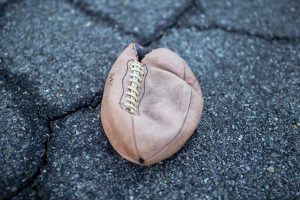It can be assumed that one who takes part in violent activity is at risk of permanent injury. In many cases, however, the reward is well worth the occupational health risks. This is a justification that can be seen as far back as Roman Gladiators, who won riches and celebrations across the Empire for their successes despite facing certain death for their failures. The same holds true today, where aside from stunt drivers or Chris Brown’s girlfriend, a professional football player might be the most dangerous gig in the entertainment industry. The shelf life of an NFL player, especially those at positions prone to poundings (such as running back), is only a few years. Players who have spent their lives honing their craft are given a very small timeframe to cash in on their talent and to position themselves financially for the future. Even if a player remains healthy, fatigue and athletic decline can be seen by the age of 30. Just ask the guy who drafts Chad Ochocinco in your fantasy league this year.
But is it right to submit football players to a lifetime of pain and injury simply because that’s what’s expected from football players? To what extent should the NFL go to protect players from a cruel and unforgiving career? It is this physical toll, an apparent “part of the game”, that is now being called into question by a class action lawsuit. Ex-NFL players are uniting to fight the League’s seemingly lackadaisical approach to solving a concussion epidemic that is only increasing as the players continue to get bigger and faster. Currently, more than 2,400 (and growing) retired players are looking for retribution for the long-term physical and mental damages they received while playing in the NFL. The basis of their case lies in the belief that the League knew that multiple concussions could lead to permanent brain damage, yet did not divulge sufficient information to its players and did not take appropriate measures to attempt to mitigate the effects. As the backlash regarding head trauma among retired NFL players increases, the League will be pressured to make changes in order to maintain the success of the United States’ most popular profession in sports.
